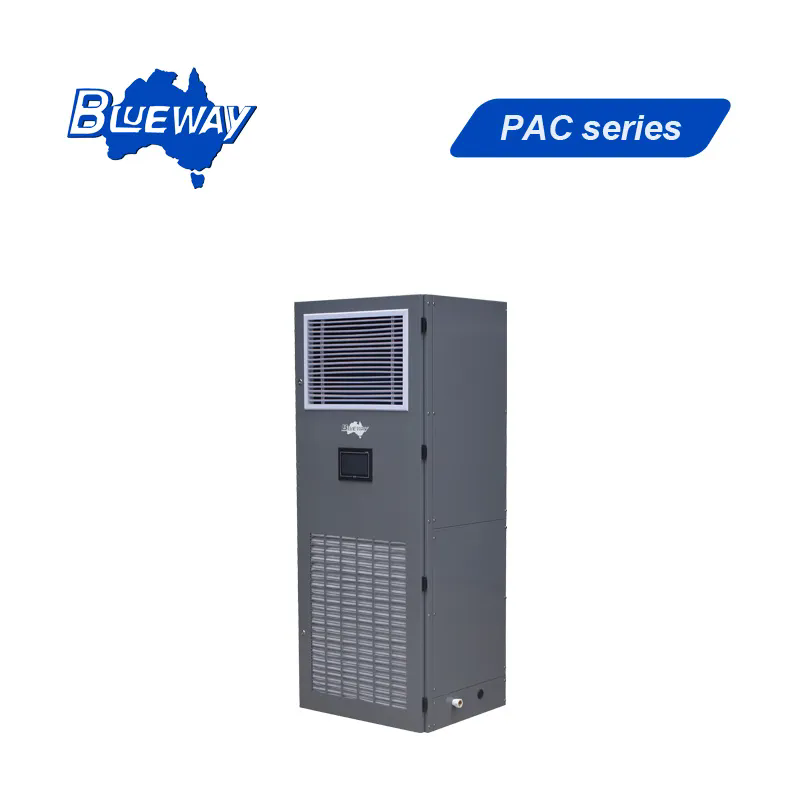Understanding Precision Air Conditioners: The Key to Optimal Climate Control
2024-09-12
In environments where maintaining a consistent temperature and humidity level is crucial, precision air conditioners (PACs) play an indispensable role. Unlike standard air conditioning systems, PACs are designed to deliver precise climate control, making them essential for industries and applications where environmental conditions must be meticulously managed. This blog delves into what precision air conditioners are, their key features, and the benefits they offer for various applications.
What is a Precision Air Conditioner?
A precision air conditioner is a specialized cooling system designed to maintain strict control over temperature and humidity within a specific environment. Unlike conventional air conditioners, which provide general cooling for larger spaces, PACs are engineered to deliver highly accurate and stable conditions. They are commonly used in settings such as data centers, telecommunications facilities, laboratories, and manufacturing plants, where even minor deviations in temperature or humidity can lead to equipment malfunctions or product defects.
Key Features of Precision Air Conditioners
1. High Precision Temperature Control: Precision air conditioners are designed to maintain a specific temperature range with minimal fluctuations. This is achieved through advanced sensors and control systems that constantly monitor and adjust the cooling output.
2. Humidity Control: Alongside temperature regulation, PACs also manage humidity levels. This is crucial for preventing condensation, corrosion, and other moisture-related issues that can impact sensitive equipment or processes.
3. Reliability and Redundancy: PACs are built for reliability and often include redundancy features to ensure continuous operation. This includes backup systems or components that kick in if the primary system fails, minimizing the risk of downtime.
4. Energy Efficiency: Modern precision air conditioners are designed to be energy efficient. They utilize advanced technologies and controls to optimize energy consumption while maintaining precise environmental conditions.
5. Advanced Filtration: To protect sensitive equipment from dust and contaminants, PACs often come equipped with high-quality air filters. These filters help maintain clean air and prevent particles from affecting the operation of sensitive machinery.
6. Scalability and Flexibility: Precision air conditioners can be scaled to meet the specific needs of different environments. They offer flexibility in terms of installation, allowing them to be integrated into existing systems or used as standalone units.
7. Remote Monitoring and Control: Many PACs come with remote monitoring and control capabilities, allowing facility managers to track performance, receive alerts, and make adjustments from a distance.
Benefits of Precision Air Conditioners
1. Enhanced Equipment Longevity: By maintaining stable temperature and humidity levels, PACs help extend the lifespan of sensitive equipment. This reduces the risk of overheating, condensation, and other issues that can lead to premature equipment failure.
2. Improved Performance and Reliability: Precision air conditioners ensure that critical systems operate within optimal conditions, reducing the risk of malfunctions and downtime. This is particularly important in data centers and telecommunications facilities where continuous operation is essential.
3. Energy Savings: Efficient precision air conditioners can lead to significant energy savings by optimizing cooling output and minimizing unnecessary energy consumption. This contributes to lower operational costs and a reduced environmental footprint.
4. Enhanced Comfort and Safety: In environments such as laboratories and manufacturing plants, maintaining precise climate control contributes to a safer and more comfortable working environment. This helps in achieving better product quality and operational efficiency.
5. Reduced Maintenance Costs: By preventing issues related to temperature and humidity fluctuations, PACs help reduce maintenance costs associated with equipment repairs and replacements. This translates to lower overall maintenance expenses.
6. Compliance with Regulations: For industries that must adhere to strict environmental regulations, precision air conditioners help ensure compliance by maintaining the required temperature and humidity levels.
Applications of Precision Air Conditioners
1. Data Centers: Precision air conditioners are essential in data centers to prevent overheating of servers and other critical IT equipment. They ensure that temperature and humidity levels are kept within strict limits to maintain optimal performance.
2. Telecommunications Facilities: In telecommunications facilities, PACs help maintain the reliability and performance of communication equipment by providing precise climate control.
3. Laboratories: Laboratories often require precise temperature and humidity control for experiments and testing. PACs provide the stable environment needed for accurate and reliable results.
4. Manufacturing Plants: Certain manufacturing processes require specific climate conditions to ensure product quality and consistency. Precision air conditioners help achieve and maintain these conditions.
5. Medical Facilities: In medical facilities, PACs are used to maintain controlled environments for sensitive equipment and pharmaceuticals, ensuring their proper storage and function.
Choosing the Right Precision Air Conditioner
When selecting a precision air conditioner, consider the following factors:
1. Capacity and Size: Choose a PAC with the appropriate cooling capacity and size to meet the specific needs of your environment. Proper sizing ensures efficient operation and optimal performance.
2. Features and Controls: Look for features such as advanced temperature and humidity controls, energy efficiency, and remote monitoring capabilities. These features contribute to better performance and ease of use.
3. Reliability and Redundancy: Ensure that the PAC offers reliability and redundancy features to minimize the risk of downtime and ensure continuous operation.
4. Energy Efficiency: Opt for models that are designed for energy efficiency to reduce operational costs and environmental impact.
5. Maintenance and Support: Choose a PAC from a reputable manufacturer that offers reliable maintenance and support services. This ensures that you receive prompt assistance if any issues arise.
Conclusion
Precision air conditioners are vital for maintaining optimal climate control in environments where temperature and humidity levels must be carefully regulated. By providing high precision, reliability, and energy efficiency, PACs help protect sensitive equipment, improve performance, and reduce operational costs. Whether in data centers, laboratories, or manufacturing plants, investing in a precision air conditioner ensures that critical systems operate within ideal conditions, contributing to overall success and efficiency. Embrace the power of precision air conditioning and experience the benefits of precise climate control in your operations.



